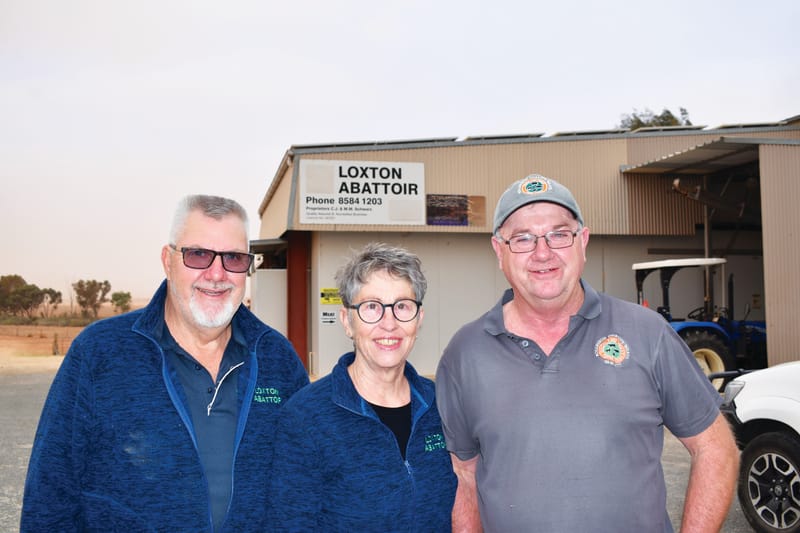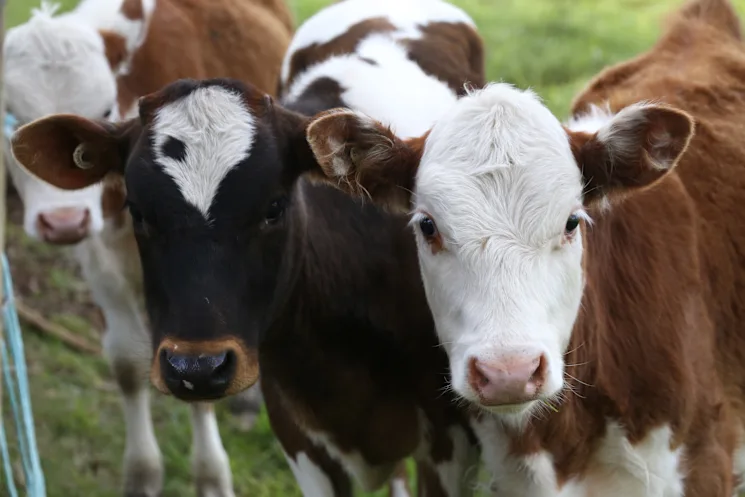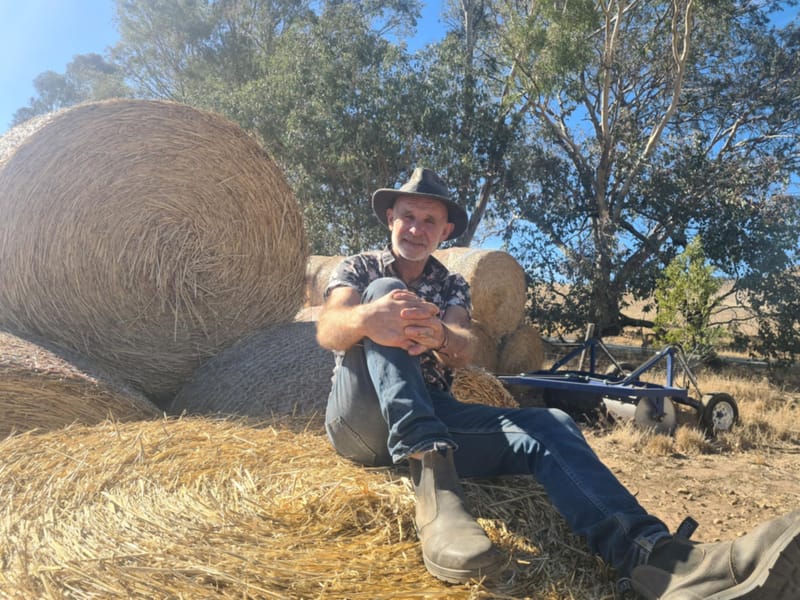Bull Oak Well Angus goes from strength to strength
IN 1997, Pinnaroo farmers Heath and Amanda Nickolls registered their first calves. Now, 25 years later, Bull Oak Well Angus calves about 240 stud calves each year, while selling 60 bulls at its annual February sale and another 30 to 40 privately...
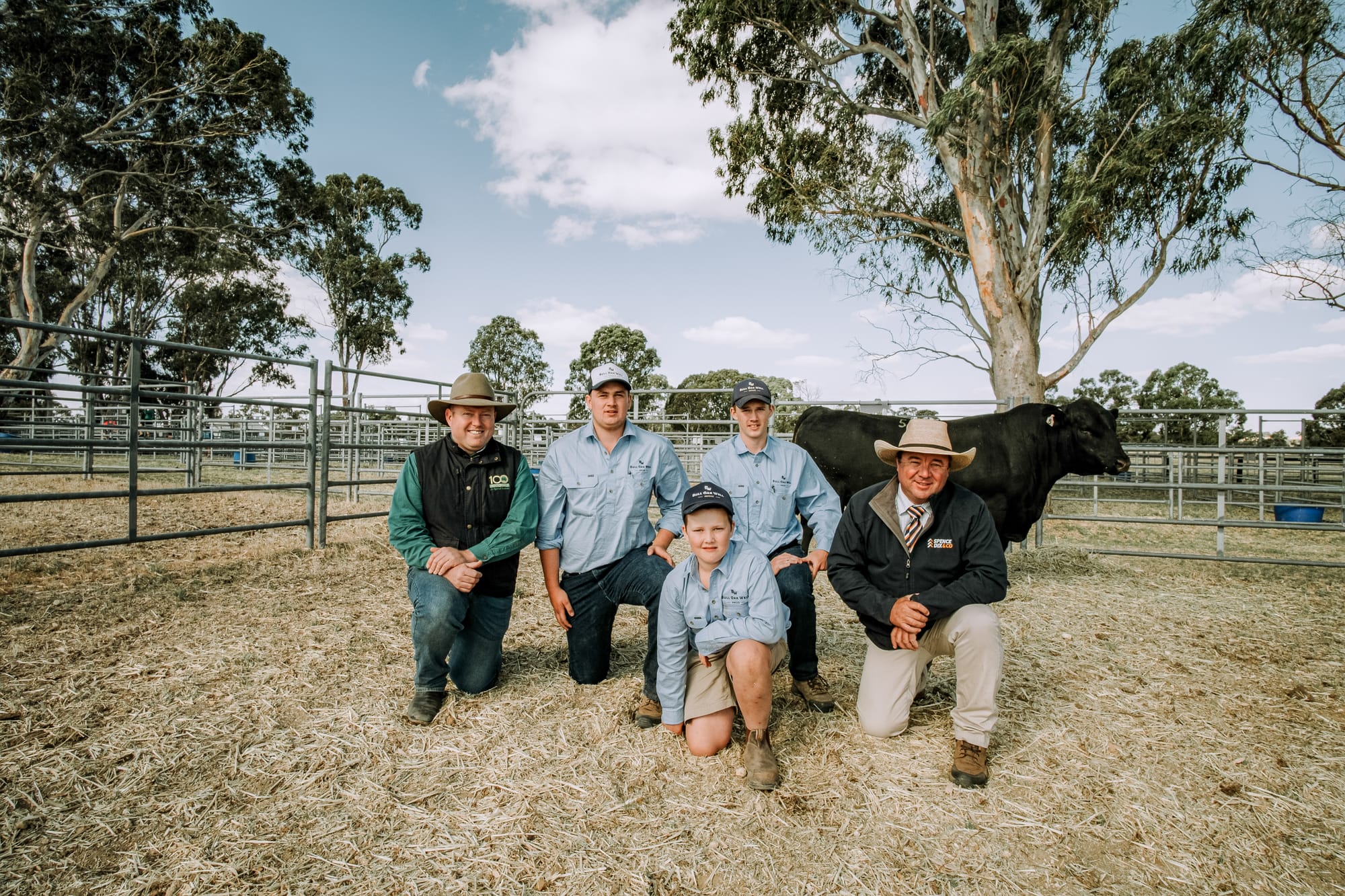
IN 1997, Pinnaroo farmers Heath and Amanda Nickolls registered their first calves.
Now, 25 years later, Bull Oak Well Angus calves about 240 stud calves each year, while selling 60 bulls at its annual February sale and another 30 to 40 privately throughout the year.
Mr Nickolls said running a successful stud cattle business was never part of a plan.
“We probably fell over it by accident,” Mr Nickolls said.
“We bought our first cows from Roseleigh Angus at Pinnaroo, and then we slowly added more cows from other dispersals and other herds from around Australia.
We bought registered cows, then they had registered calves, then someone bought a bull. So, then we started to artificially inseminate (AI) them and tried to breed bulls from then on.”
This February, at its annual sale, Bull Oak Well Angus again cleared 60 bulls, with a top price of $36,000 and an average of around $12,000, making it a record-breaking sale for the stud.
“The top priced bull, R11, was sired by an American bull, Baldridge Beast Mode, and was out of one of our top cows,” Mr Nickolls said.
“He attracted a lot of attention prior to the sale as he was a ‘calving ease bull’ that had great growth and carcase EBVs as well as outstanding structure and eye appeal.
“He was sold to a long-term client at Tintinara.”
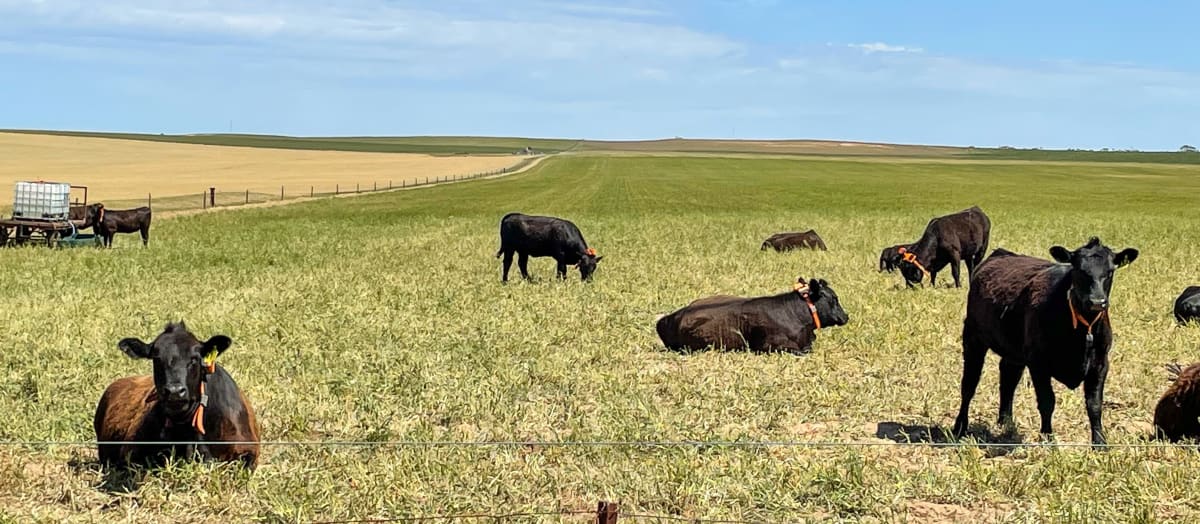
The Nickolls’ success has been made possible thanks to a long-term interest in registered livestock, plus a lot of hard work.
“I have always been interested in stock with pedigree,” Mr Nickolls said.
“Whether it is sheep, cattle, chooks or whatever, it’s just always been an interest.
“(We love) the breeding side of it…
We use bulls from all around Australia and all around the world.
“Being able to breed a good animal that goes on, seeing clients buying them and then seeing them breed good calves that weigh well and are profitable for our clients – I guess that is probably a thing that we really enjoy to see.”
When looking at bulls the first characteristic Mr Nickolls checks is fertility.
“We start with the fundamentals – fertility, structure, docility – and then we move on to body type; so, good constitution and good muscle pattern,” he said.
“We have been trying to add marbling into our herd too, trying to select bulls that are not extreme for marbling but above average.”
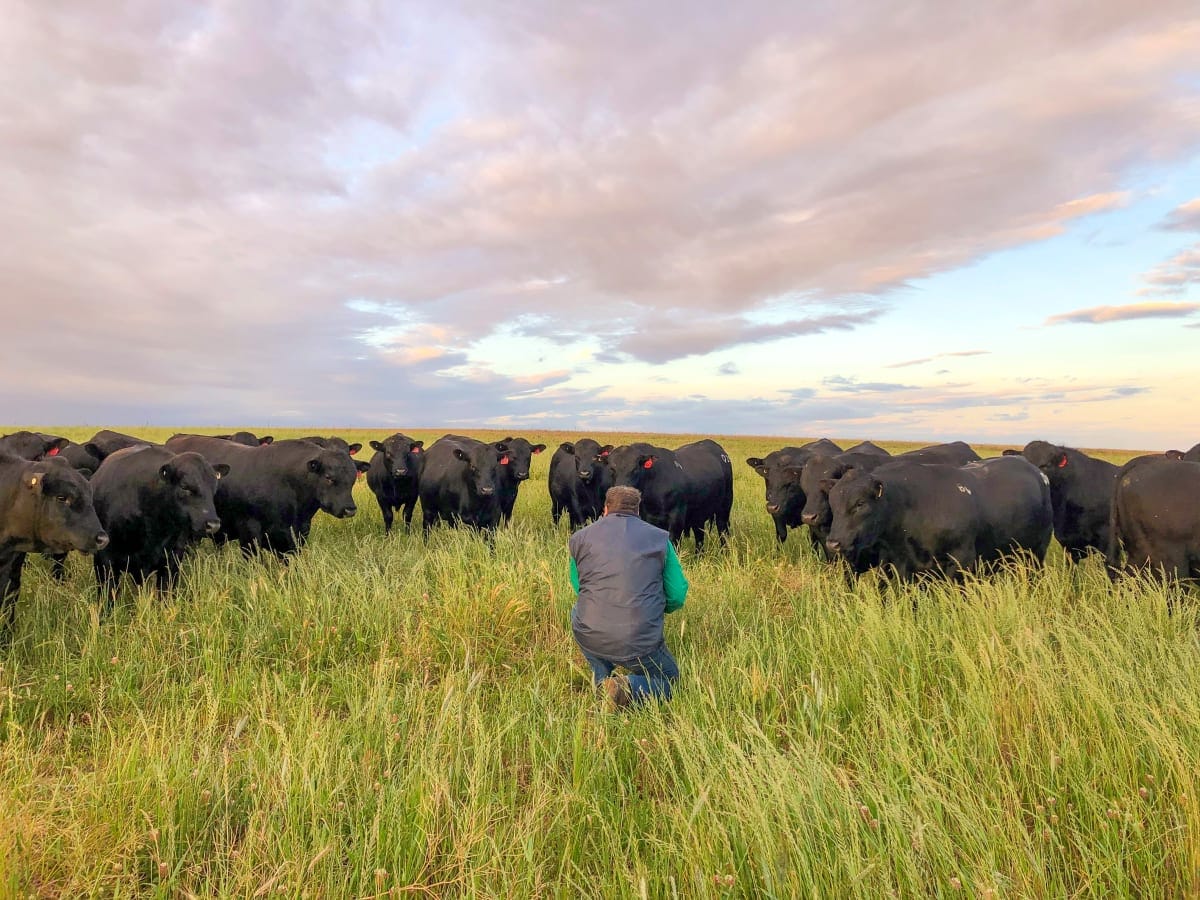
Modern technology has also become part and parcel of the business.
“We will probably AI 70 per cent of our herd, and we also run an embryo transfer (ET) program where we fertilise embryos out of our top cows and implant them in our lower quality cows,” Mr Nickolls said.
“ET is good but you still have to have a whole herd accountability, your whole herd has to be good still. (So) I think ET is good, but not on a large scale.
“We might breed 10 to 20 calves a year by ET, and they might all be out of a specific cow.
“In saying that we have a co-operator herd in the Adelaide Hills that we implant embryos in up there, then we take back the progeny. So that is a good way of getting your numbers up and not having to run them here.”
Mr Nickolls said ET was about identifying the best-performing cows, then multiplying them as much as possible.
“We have a cow called Melody H50 that we have been flushing and last year she would have had 15 calves, and we got seven heifers,” he said.
“So we will have seven more of her daughters into the herd calving next year, which is really exciting I reckon.”
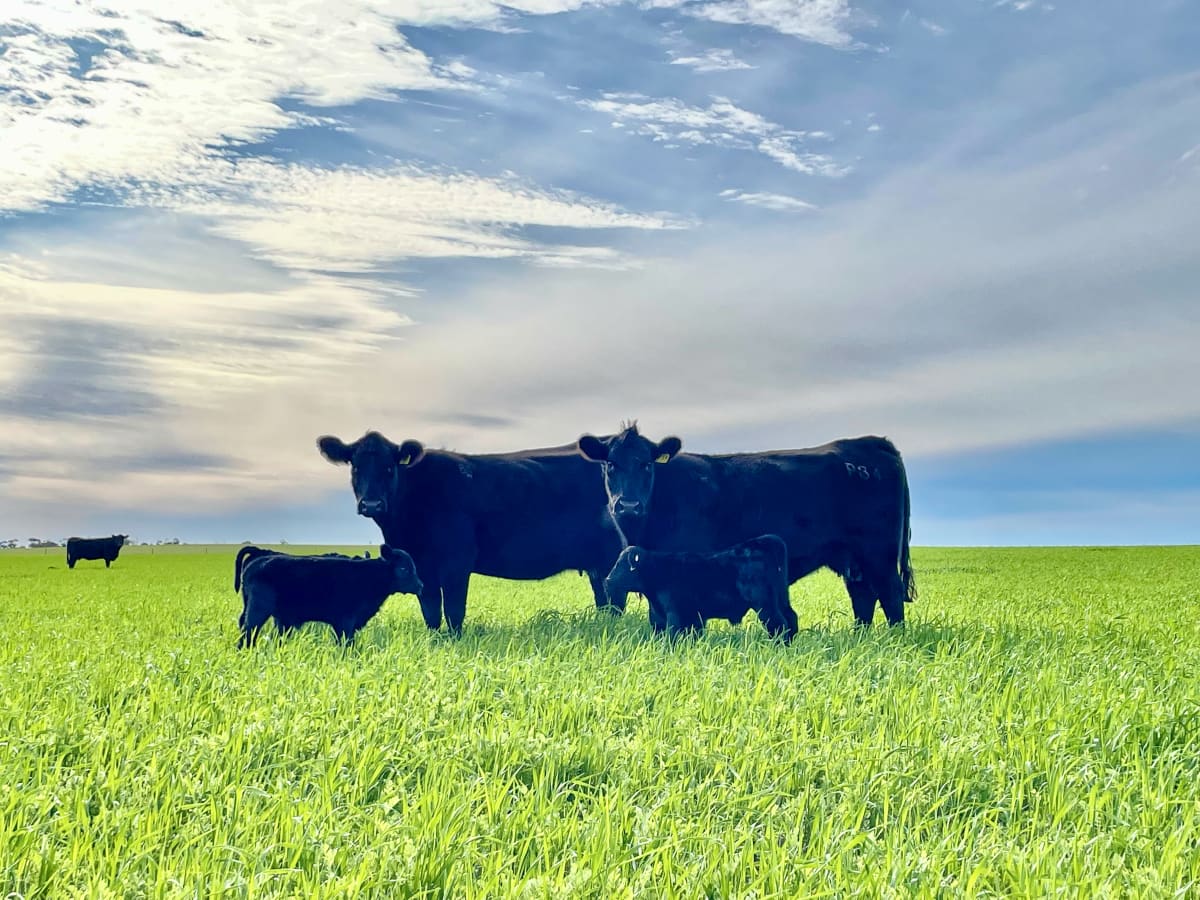
In 2021 the Nickolls were approached by Rick Llewellyn, from the CSIRO, to take part in a virtual fencing trial.
The trial included having collars attached to 40 heifers and placing them in a paddock that had one side of physical fencing and three sides of virtual fencing.
The trial went well enough for it to return in 2022.
“It worked again, and worked even better this year,” Mr Nickolls said.
It’s pretty exciting. It’s a fantastic way to graze your paddocks evenly and… keep stock off areas like sand rises.
“I think it is… the way of the future.”
Like many livestock breeders across Australia at the moment Mr Nickolls is concerned about the possible outbreak of foot and mouth disease in the country, now that it is widespread in Indonesia.
“It is at the front of my mind,” he said.
“We have already started to get information together to try and work out our own biosecurity plan, and try to limit traffic on and off our farm going forward if it does hit Australia.
“It is the biggest threat to the livestock industry we have seen for quite a while.
“It will destroy cattle, but it will also (mean) the price of cattle will take a huge knock, and it will be felt through Australia.
“It won’t be just cattle and sheep producers that feel it, it will be everyone (down the supply chain).”
Meanwhile Mr Nickolls, wife Amanda, and sons Cooper, Harry and Archie, are looking forward to February 2023 for the business’s annual bull sale at Willalooka, where they will again offer 60 bulls for sale.


